Vampires, Lent and the Sabbath-Moon
Reflecting on the process of writing and recording 'The Lay of Princess Lune'.
Last week, on Easter Saturday, the conclusion to The Lay of Princess Lune went out. After receiving some great questions in the comments of the last two instalments, I thought I’d write up a short reflection on the story and the experience of working on it.
Spoilers ahead (kind of), so if you haven't already, maybe read or listen to the lay before continuing — it will probably take about twenty-five to thirty minutes (start here: Part I). Or, if you’d just like to peruse a little reflection on the nature of storytelling, moon-fairies and vampires, read on.
How It Came About
It all started with a conversation about vampires, I think. In 2022, Matthieu Pageau and
talked about them (fast forward to 1:17:35 in this video), and their words echoed long in my mind. I began to want to write a vampire story.I got busy getting married, moving town, trying a few different jobs and areas of tertiary study, and just didn’t get around to it for a few years. By 2024, I was thinking and talking about the idea with a significantly increased intensity and frequency.
In September last year, I read The Lay of Aotrou and Itroun by Tolkien. It was awesome, and I was inspired to practice writing a few stanzas of narrative couplets. On Thursday, the 13th of October, I sat down shortly before lunch to do this, beginning with:
A phantasy before my eyes Grew fast with sleepless fangs and lies, Unfolding like an ancient map That told of treasures and a trap. I knew a monster dwelt within That broken castle, yonder, grim. Supine and restless in its hearce; Of old, it wandered, bold and fierce. - Part I
I scribbled these lines down fairly quickly, feeling like my mind was on nothing in particular at that time — except perhaps a vague conception of ‘Fantasy Epic with monster’ — but, in the moment of silence that followed my unconscious rambling, the entire story landed, complete, in my conscious mind. One moment, I was not thinking about much; the next, a sinister vampire phantasy had apparently been dumped into my mind like a hard-shelled nut thrown from a crow above to break open on a rock below.
Two years of vaguely wanting to write a vampire story suddenly culminated in a kind of gothic vampire-phantasy poem.
59 more lines poured out that day, and I wrote about 70 lines per day over the following six days (skipping one day), finishing the first draft on the 19th of October.
Come November, nearly two weeks later, my wife and I were on the road, wedding-hopping, then flying to France on the 5th. While photographing castles, cathedrals and kirks overseas, I started making edits and touch-ups to the lay and planning its publication over Lent, 2025. Returning to Australia in late January, I began formatting the instalments on Substack and selecting photos from Europe to go along with them.

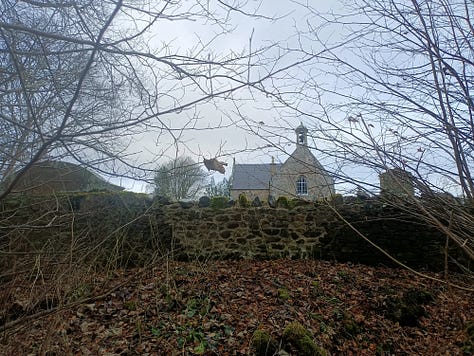

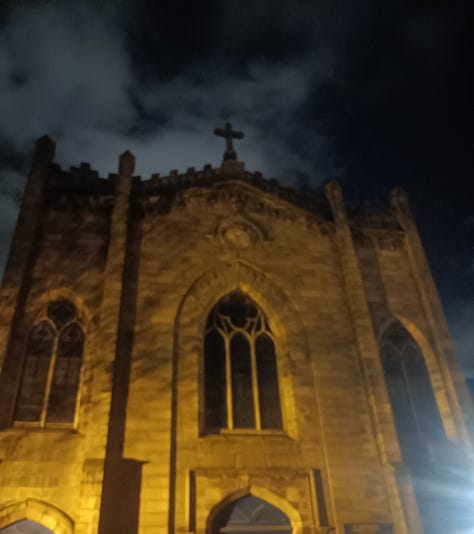

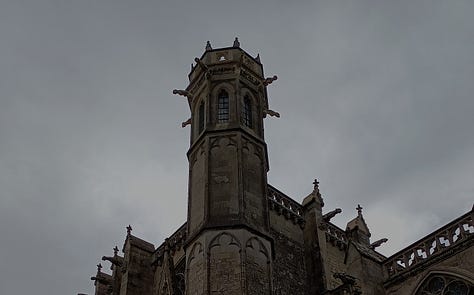
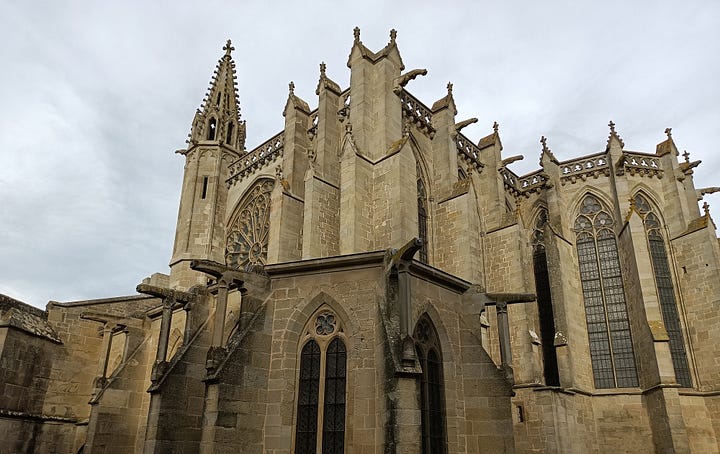
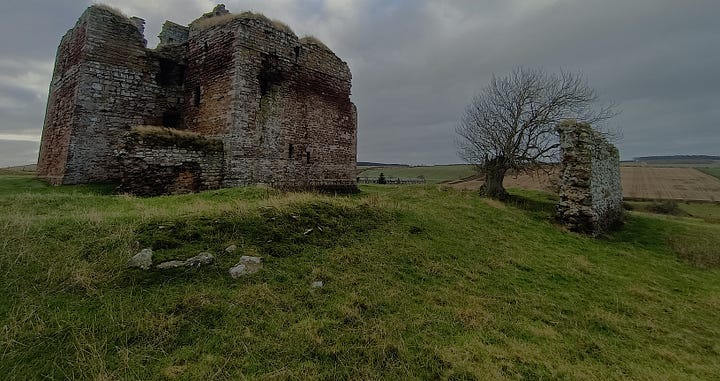
Just over a month later, Lent began. I proofread each instalment a few times in the week before its publication and usually recorded the audio a day or two beforehand.
Why during Lent, and Why on Saturdays?
So, this is a vampire story; what does it have to do with Lent and the sabbath-moon?
I think the vampire myth is pretty important for our pleasure-seeking, over-sanitised age. The vampire is obsessed (to a soul-destroying, flesh-preserving degree) with purity, or endless virginity. I consider this story a 'Lenten lay', because the vampire's primary sins could be conceived as 'not participating in Lent or observing the sabbath'. In many respects, Lent is the practice of contemplating how to die at the right time and in the right way, and preparing for that death.
I never sleep, 'cause sleep is the cousin of death
- Nas (N.Y. State of Mind)
Death is seldom clean or pure, and so the vampire does not contemplate or prepare for it. For the same reason, the vampire takes pleasure in using the power and purity (the blood) of virgins instead of sleeping, dreaming or observing a sabbath — because in sleeping, dreaming and idleness, our thoughts roam beyond our control or sanitisation, possibly becoming impure.
And in the night, it spread its wings And flew to her for what blood brings; - Part I You journey to a sleepless place Where dreamless men have left their trace, - Part II This wood is cursed, we dryads thirst For blood to push away the worst Of endless dark without a dream, So hopeless does our waking seem. - Part III
Thus, this kingdom has been given artificially prolonged life through the enchantment of the vampire using the power of the virgin’s blood. To prevent this from happening, the princess is meant to wed and continue the royal line, giving the kingdom over to her descendants and passing it on, out of her control (this means preparing to die at the right time and in the right way; participating in Lent and observing the sabbath).
Curled up in an exhausted heap, She was the moon, unchecked by sleep. - Part I
Like werewolves, vampires are obsessed (driven into a restless lunacy) with the beauty of the moon’s life-giving cycles, and the virginal cycles which match it. The vampire wants to take and use the power of these cycles by narcissistic trickery and subversion; the knight or prince, however, strives to sanctify them through the sacrament of marriage, through the practice of Lent and through resting under the sabbath-moon.
For fire of the moon, I prayed; Then in the dark did not delay - Part VIII
So, that’s why I think this is a ‘Lenten lay’. Maybe it needs a sequel — an Easter story. I'm not sure I'm up to the challenge yet. Sometimes it's easier to write the upside-down Easter — the vampire climbing out of the coffin instead of Christ descending to harrow hell; the vampire taking the virgin’s blood instead of the virgin giving it up in love … or perhaps this is what Princess Lune was doing the whole time.
Indeed, it was the strangest thing, The princess did not grow so dim, But shone with an increasing glow The monster's bites could never slow; In that cold cage, she was the moon, By some strong luck or holy boon. For long she lay, rocked by the breeze, And ceaseless prayed, 'Have mercy, please.' - Part I The bite upon her pallid throat, Had bled and kept the knight afloat, As with her love, it was bestowed, It healed both wound and knight hallowed. - Part VII
~
Until next time,
Peter Harrison
PS. The Occultist, the Alien and Artificial Intelligence: A Recipe for Vampirism?
I haven’t yet read
’s latest book, but I have been following his work online for a little while. This lay, especially its frame-narrative and the uncertainty of its ending, has certainly taken a little influence from his (and ’s) forays into the topics of the occult, aliens and artificial intelligence1. I won’t go into this too much — I don’t have precise enough language for it yet — but I will venture to express just a little of my amateurish thinking as it relates to The Lay of Princess Lune …Cultural interest in occult practices, aliens and the development of artificial intelligence is sharply rising. As Rod Dreher and Paul Kingsnorth point out, the experts in the latter two areas of interest often seem to lean into language rather fitted to occult, demonic and vampiric topics when speaking of their scientific exploits. I think this is part of why it felt right to end the phantasy frame-narrative with the resurrection of the monster. Developments in these areas of inquiry often feel phantasmic — out of control to the point of surreality — to the point of feeling like we’re sleepwalking towards something akin to the summoning of an evil spirit.
Its blood-red eyes then met my own, And I fell down and longed for home. For like an ancient spell, intoned, I knew this dream was not my own; This phantasy, the beast had sown -- A way to bring him back, he'd known. - Part VIII
I’m a Christian; I happen to believe that things of this sort occur rather frequently. At a personal level, I might even see this lay as applicable to struggles I’ve had in my own young life … The stakes couldn’t be higher, of course, but the victory couldn’t be surer. The vampires lurking before our covetous, reaching fingertips couldn’t be more terrifying; the Lord’s mercy couldn’t be more beautiful.
Check out this conversation between Jonathan Pageau and Rod Dreher, this article from Rod Dreher and this series of essays from Paul Kingsnorth for more on their explorations of these topics.




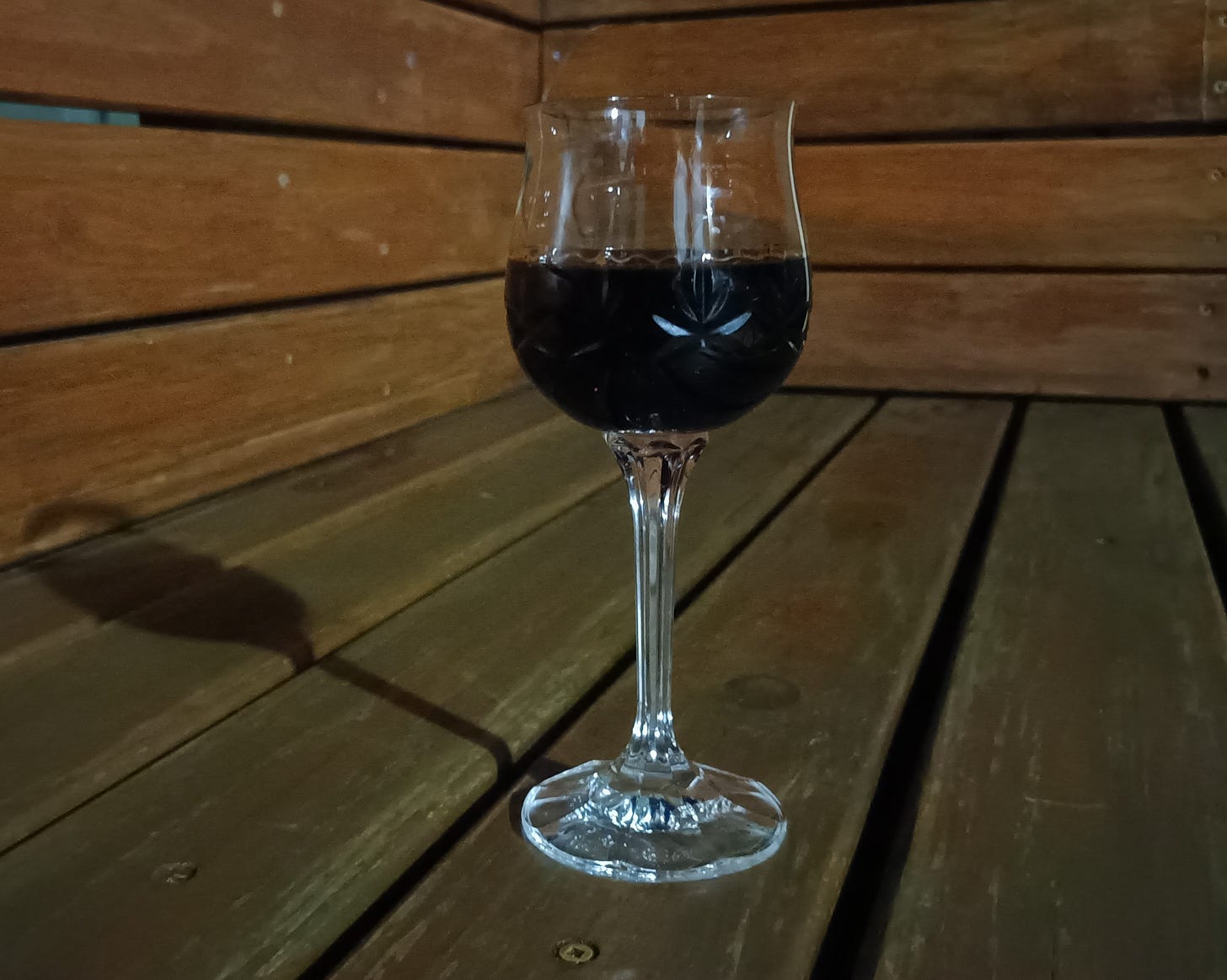
Thanks for all the links. Looks like I got some research cut out for me.
I’m so glad you wrote this because I was really intrigued by what you wrote in the comments. I love your last line. We do live in perilous times.